More than 2,000 Portuguese family histories are included in a manuscript being prepared by the Dukes County Historical Society.
The document chronicles the arrival of Portuguese immigrants to the Vineyard, particularly the whaling crews recruited in the Azores and Cape Verde in the 19th century. It includes mention of approximately 7,000 individuals and 2,350 families, whose descendents today make up a significant portion of the Island’s year-round population.
“Until now, very little information has been available on the Portuguese contributions to Vineyard history,” said society directory Marian Halperin. “This project will begin to rectify that omission.”
Mrs. Marianne Thomas of Edgartown and Pompano Beach, Fla., an experienced amateur genealogist, spent 25 years compiling the family histories, and turned the information over to the society two years ago.
Ann Allen, society librarian, working with Catherine Mayhew, the society genealogist, has been preparing the document to conform with Dr. Charles Banks’ History of Martha’s Vineyard. The finished manuscript will be available for research at the Dukes County Historical Society.
The Martha’s Vineyard National Bank Foundation has approved a grant of $3,000 towards preparing the document. The society and Mrs. Thomas have each pledged $500, and gifts from private individuals have reached $2,200. The costs involved in computerizing and indexing the records and setting up the manuscript total $19,500.

From the May 10, 1991 edition of the Vineyard Gazette:
County Historical Society Presses Ahead with Huge Portuguese Genealogy Project
The Dukes County Historical Society announces the first half of their Portuguese Family project has been completed. This step means that the work begun over 25 years ago by Marianne Thomas, an Island resident and amateur genealogist, is finally reaching fruition. Learning the details of anyone’s Island Portuguese heritage is now no more complex than dropping by the Society Library on School street, if their name begins with the letters between A and L.
In recent years, many Americans have become involved in searching for their family’s historical roots. Sometimes, they are lucky enough to find existing studies that do much of their work for them such as the genealogical volume of Charles Banks’ History of Martha’s Vineyard which traces the history of the early English settlers on the Island.
Until recently, however, no such work existed for those seeking information about the Portuguese heritage of Martha’s Vineyard.
Anyone doing research about ancestors who came to the Island during the Portuguese migration that began in the mid-nineteenth century was faced with the arduous task of searching through individual town records.
This situation is about to change radically. The Dukes County Historical Society is now halfway through its effort to complete a compendium of all the Portuguese families of Martha’s Vineyard. A draft version of the work for families whose names begin from A to L is available at the Gale Huntington Library of History at the society’s facilities in Edgartown.
Before the work is completed, the society hopes that families with a Portuguese background will take the time to check the current information and provide supplementary data if possible.
The work on the Portuguese family histories has been supported by a core grant from the Martha’s Vineyard National Bank with additional support from the Art Lotteries of Edgartown and Tisbury, the society itself, the Martha’s Vineyard Cooperative Bank, the Permanent Endowment Fund for Martha’s Vineyard and 12 individual gifts. The society is in the process of raising the $8,000 needed to complete the second half of this project.
This compendium of family records is the result of over 25 years of work by Marianne Thomas, an Island resident whose husband’s family is partially Portuguese. She began her research in response to one of her children’s questions about his father’s family background. Her frustration about the lack of available information set her off on a project which has expanded to include virtually all the descendants of the 19th century immigrants.
Mrs. Thomas’ monumental work fills in two important gaps in current genealogical studies of Martha’s Vineyard. Banks ended his story in the mid-18th century. When Roy Norton extended Mr. Banks’ work to the end of the 19th century, he dealt only with the original English families listed in Banks’ work.
Both Banks’ and Norton’s work follow the traditional approach of ignoring female descendants who married outside the families in a regional genealogy. The society’s work goes beyond this traditional view to provide information about both male and female descendants.
Mrs. Thomas’ manuscript is being prepared for publication by Time and Tide Inc., an Edgartown data-processing company. The use of computers has made it possible to create the complex index necessary to keep track of female descendants with their constant name changes as well as creating a final reproducible version of the book. When the editors’ work is completed, copies of the over 1,000-page compilation will be available at the society. Mrs. Allen comments that she hopes this will be an ongoing project.


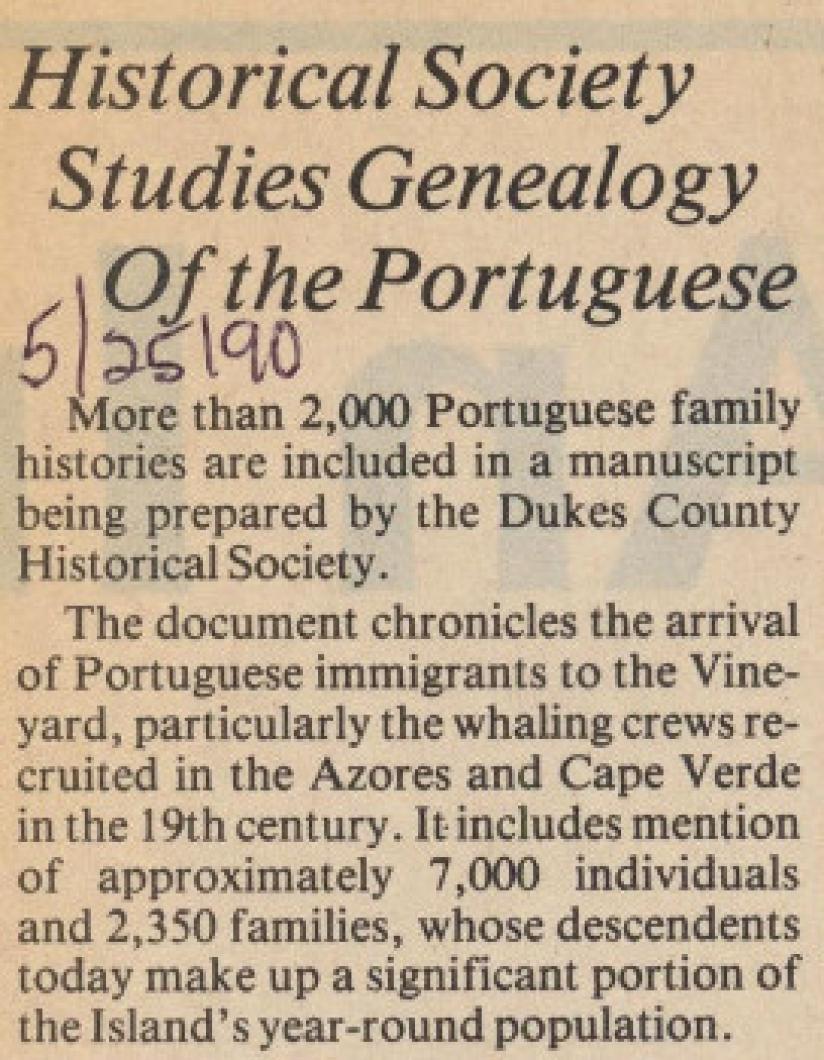



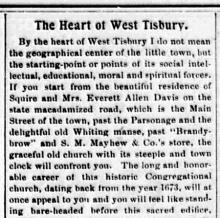
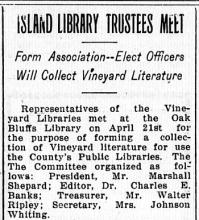
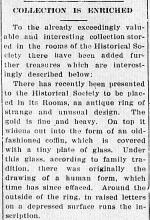

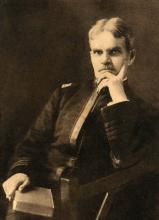
Comments